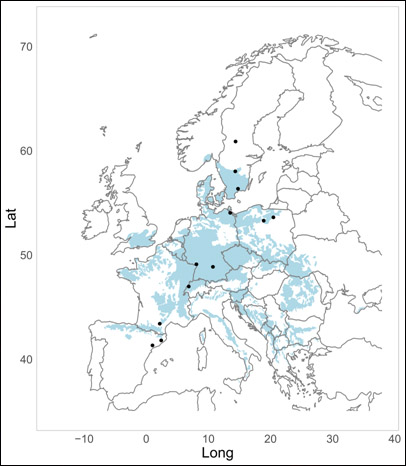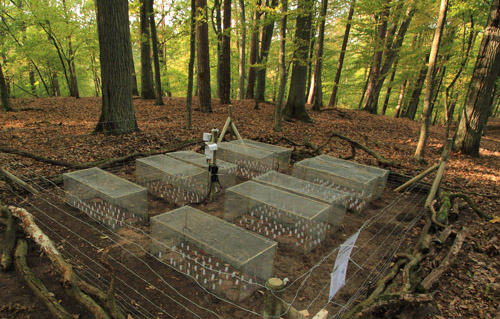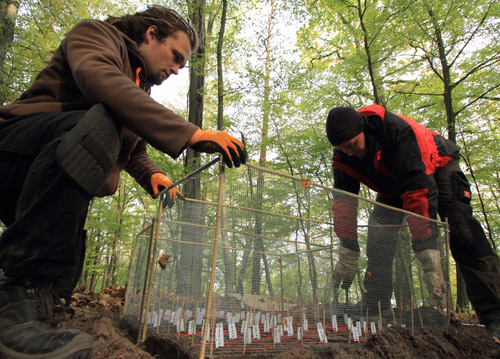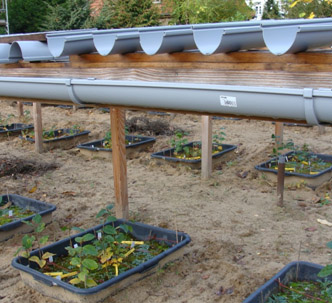RESPONSE A6
Potentials and limits of phenotypic plasticity and genetic adaptation in Fagus sylvatica





Contact: Lena Muffler, Andrey Malyshev & Jürgen Kreyling
We aim to achieve further insights on plasticity and heritability in Fagus sylvatica (L.) by a combination of field data, common garden and climate chamber experiments as well as dendroecology. This project is part of the DFG Research Training Group 2010 “RESPONSE” on biological responses to novel and changing environment.
F. sylvatica (European Beech) is the dominant natural forest tree in Central Europe and thrives under a wide range of climatic and environmental conditions. Yet, F. sylvatica is expected to suffer from climate change due to a low seed dispersal capacity and drought sensitivity. Phenotypic plasticity, however, within and among populations is high and can be expected to buffer against climate change in situ. Local adaptation to different climates has been demonstrated in common garden experiments. Limits of phenotypic plasticity and consequences of selection by local climate on genetic constitution, however, are unclear. Such knowledge will allow improved projections of range shifts, and provide guidance for long-term sustainable forest management.
We conduct three different experiments: a fully reciprocal transplantation experiment across Europe, a drought experiment as well as a frost experiment in Greifswald.
The fully reciprocal transplantation experiment is set up along a climatic gradient from the dry (Spain, France) to the cold edge (Poland, Sweden) of the species’ range as well as beyond the current range. Here, we will quantify phenotypic plasticity and local adaptation at the recruitment stage of F. sylvatica using individuals that germinated and established under local climates different from their origin. Further, we will study the heritability of the performance and the importance of phenotypic plasticity of mothers (quantified by tree ring analyses) and their offspring under various climates.
In addition, the importance of selection through drought stress on establishment will be quantified for individuals with or without drought stress during establishment.
Finally, the frost experiment (climate chamber experiment) deals with the possibility of stress memory on the individual level. In comparison to control groups, the seedlings had been exposed to spring and/or winter frost.
The project is funded by the Deutsche Forschungsgemeinschaft (DFG) and runs for initially 4.5 years, i.e. from April 2015 to September 2019.
